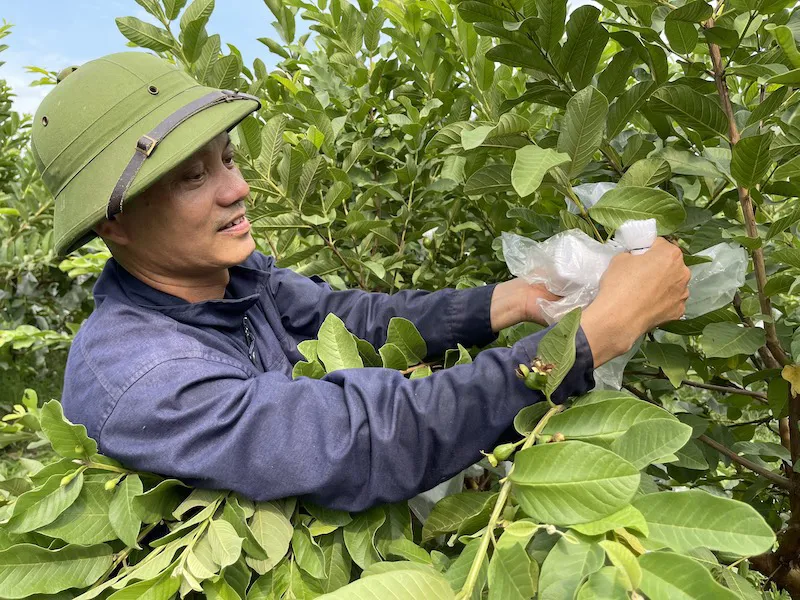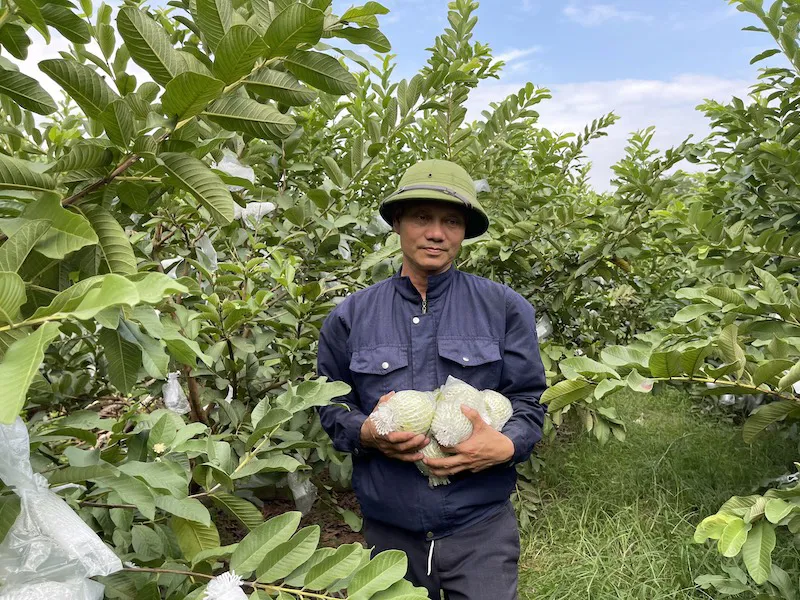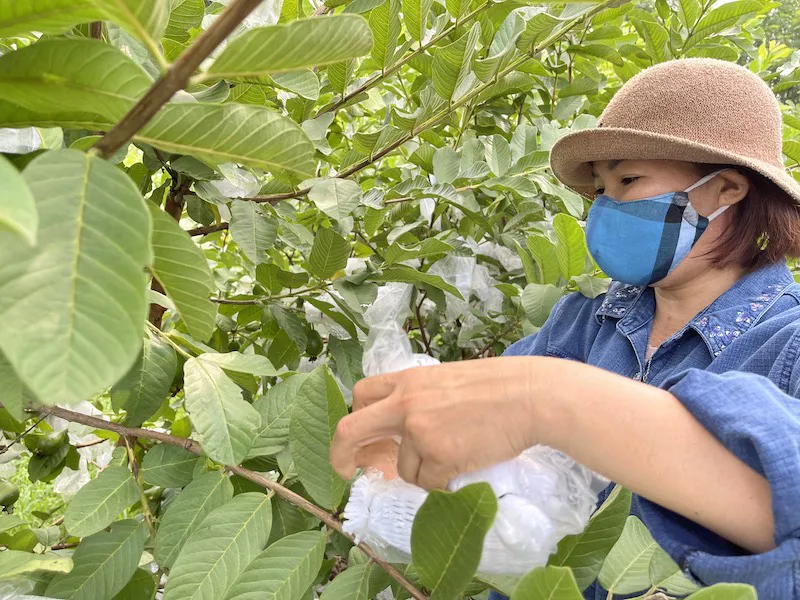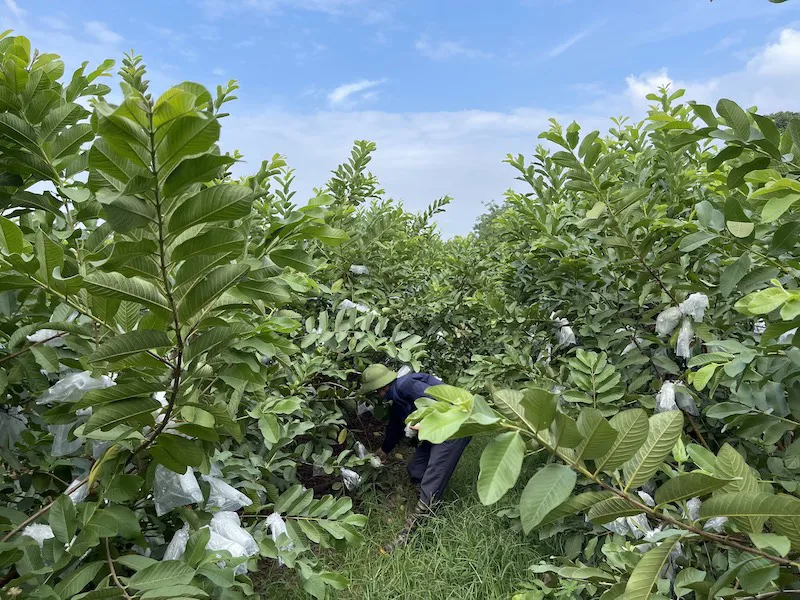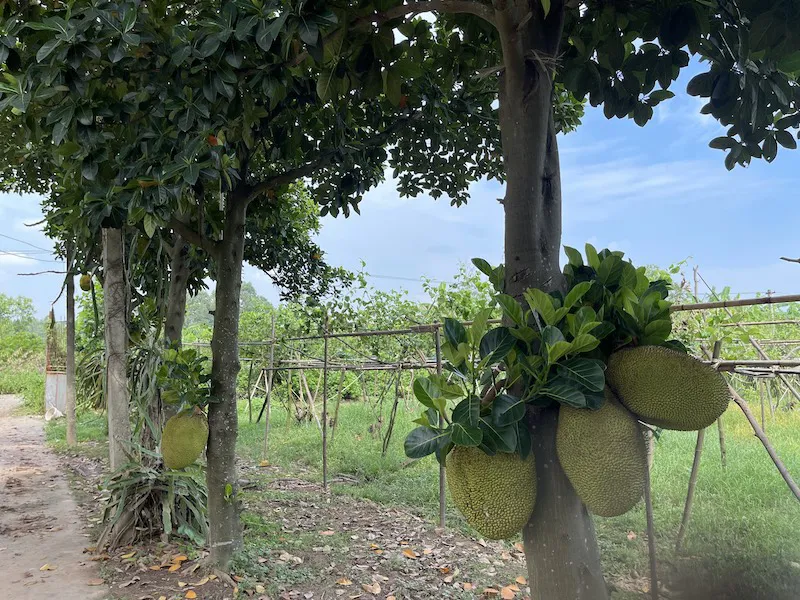Dong Mai promotes consumption of VietGap fruits
Hanoi continues to help orchards become certified according to VietGAP (Good Agricultural Practices).
The local government of Dong Mai Ward, Ha Dong District, is promoting the consumption of safe vegetables and fruits to develop cultivation areas according to VietGap standards and help farmers earn a better living as well.
| Nguyen Xuan Trung, Head of the fruit farming team in Dong Mai Ward.Photos: Thoi Nguyen/ The Hanoi Times |
Located on the banks of the Day River, Dong Mai District has a large area for growing fruits such as jackfruit, guava, apple, dragon fruit, lychee, grapefruit, and orange.
Recognizing the trend of consumers prioritizing food safety, the local government of Dong Mai Ward developed a plan to grow fruits according to VietGap standards.
Initially, farmers in the area were reticent to adopt VietGap standards. They were used to using chemical fertilizers and pesticides for their crops, which were quick, convenient, and required less effort. Meanwhile, VietGap standards involve composting organic fertilizers for 6 to 12 months before applying them to plants, in addition to biopesticides, which increases costs and time.
However, such practice has been widely adopted thanks to the strong support from the Hanoi's authorities, especially following the capital's administrative boundary expansion in 2008.
| The ward had developed more than 12 hectares of fruit trees under VietGap standards. |
Nguyen Xuan Trung, the fruit farming team leader in Dong Mai Ward, recognizes the current trend of safe food consumption. He has planted a two-hectare area with jackfruit, lychee, guava, dragon fruit, and apples that meet VietGap standards, with the support of the local government.
Nguyen Van Hoan, Vice Chairman of the Dong Mai Ward People's Committee, said the ward had developed more than 12 hectares of fruit trees under VietGap standards.
He added that families here consistently adhere to the standards of the VietGap process, using organic fertilizers and biopesticides and tap water or water from wells for irrigation.
To prevent farmers from reverting to their previous production techniques, which could damage the reputation of the growing region, commune and district officials constantly inspect farmers' production, Hoan said.
Enhancing the value of products
| Nguyen Thi Huong, a local wholesaler |
Nguyen Thi Huong, who has been buying fruit from Trung's family and other VietGap households in Dong Mai for many years to supply for markets in the capital city, said: "Nowadays, consumers pay a lot of attention to food safety. To keep regular customers, I promote organic products grown here."
The retail prices of VietGap fruits are 10-15% higher than regular products.
Trung, the team leader of the fruit growing area, added: "Most consumers are inclined to use clean vegetables and fruits. When farmers and the local government advertise their products as organic on social media and in the press, buyers flock here."
The Deputy Chairman of the ward’s People's Committee also mentioned that the fruit had been promoted on social media platforms with contacts of producers by an enterprise of the Dong Mai Ward Youth Union.
Furthermore, he added that the ward's service cooperative is responsible for promoting and connecting the market with farmers.
| The fruit growing area in Dong Mai Ward |
| The jackfruit farming area |
Hanoi will expand fruit farming models using high-tech agricultural processes and standards such as VietGAP, GlobalGAP, and organic regulations to promote its agricultural products, according to the Hanoi Department of Agriculture and Rural Development. In line with this, the city will invest in upgrading infrastructure in fruit-growing areas, applying mechanization and high technology, and organizing large-scale production. Statistics from the Hanoi Department of Agriculture and Rural Development showed that the city has more than 13,000ha of vegetables, tubers, and fruits. However, only nearly 200ha, accounting for more than 1.5% of the total area, have been granted VietGAP certificates, concentrated in the rural districts of Gia Lam, Dong Anh, Me Linh, and Hoai Duc. |


